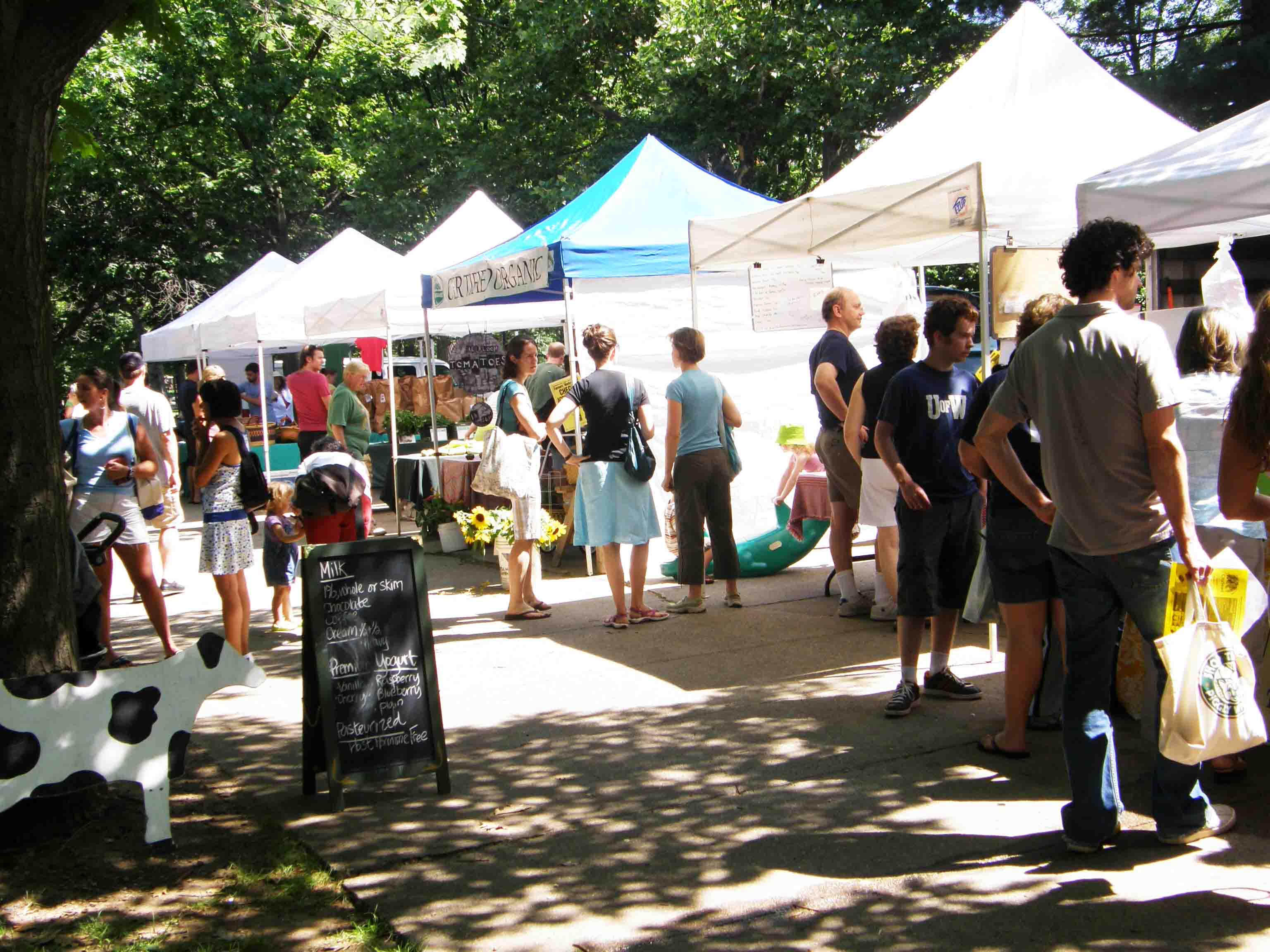
As March fades into April, Russo Park will become the weekly meeting ground for New Haven’s Wooster Square Farmers’ Market.
Hosted by CitySeed, a local nonprofit dedicated to promoting sustainable and affordable agriculture, the Wooster Square Farmers’ Market will take place each Saturday from 9 a.m. to 1 p.m., starting April 8 and ending in December. The market will attract dozens of local Connecticut farmers and business owners selling fresh produce, dairy, baked goods, meat and other specialty products.
“Our main goal has always been to make healthy, nutritious and delicious food available to everyone in our community,” CitySeed President Lisa Holmes said. “As the grass-roots movement grew into a small nonprofit, CitySeed became the first farmers’ market in the state to accept food assistance benefits … through a central handheld wireless terminal.”
To make the food accessible to people of all socioeconomic backgrounds, the market accepts stamps and vouchers from multiple food assistance programs, including Women, Infants and Children, the Supplemental Nutrition Assistance Program and Seniors. Since the market began in 2004, over $84,000 in SNAP benefits have been redeemed, according to Holmes, and in just the past four years the market has redeemed at least $45,000 in SNAP benefits, in addition to over $665,000 in Senior and WIC Farmers’ Nutrition Program benefits.
On top of counting the value of each coupon as double for SNAP customers, so as to encourage greater fruit and vegetable consumption, the Wooster Square Farmers’ Market team also engages in a produce prescription program with the Fair Haven Health Clinic, Holmes said.
“There are a number of barriers to accessing fresh produce especially in New Haven, and we work through a variety of programs — not just the farmers’ market — to address that,” CitySeed Executive Director Amelia Masterson.
In addition to the farmers’ market, Masterson said CitySeed runs a mobile market to combat specific obstacles to access, such as lack of transportation, mobility, affordability and knowledge. The nonprofit also recently established an incubator kitchen program to help refugee and immigrant cooks earn money while sharing their cuisine, culture and stories with their community, Masterson said.
Thanks to an International Association of New Haven grant, CitySeed has been able to create a new program to support refugees in starting small businesses that source local products, Masterson said. Eventually, refugees will be able to sell their goods as rotating guest vendors in Wooster Square and other farmers’ markets, according to Masterson.
Guest vendors will sell their goods alongside live music and long-term local vendors such as Root Farms, Crêpes Choupette, Waldingfield Farm, the Yale Farm and other local businesses.
“New Haven is a great food city, with a combo of knowledgeable clientele and superior restaurants,” said Patrick Horan, who owns Waldingfield Farm in Washington, Connecticut. “[New Haven] could use some help in the supermarkets, and as such is probably a reason the market is such a good one.”
Waldingfield Farm, which has sold organic crops at Wooster Square since 2009, also sells at farmers’ markets in Morris, Washington Depot, Newtown and Brooklyn. Horan noted his diverse clientele and the presence of many Yale graduate students and professors at his market stall.
For the 2017 farmers’ market season, Horan said he looks forward the most to meeting new customers and sharing Waldingfield Farm with friends and shoppers.
“During my summers in New Haven, I always enjoy going to the Downtown Farmers’ Market hosted by CitySeed,” Joana Andoh ’17 said. “There is a wide variety of in-season produce, and I think it’s a great way to sample local and sustainable food.”
According to Lauren Kim ’20, a culinary events intern for the Yale Sustainable Food Project, selling at the farmers’ market is a great experience because students can interact with the New Haven community and other vendors.
According to a DataHaven Community Wellbeing Survey, 35 percent of New Haven residents in low-income neighborhoods felt insecure about having enough money to purchase food, in comparison to 12 percent of all Connecticut residents.
Masterson said making fresh produce more available directly addresses New Haven’s issue with food insecurity.
“Farmers markets stimulate the local economy, preserve farmland and rural economies, increase access to fresh food and support healthy communities,” Holmes said. “Many of our vendors, both farms and businesses, depend on our markets for their livelihoods; well over $2 million each year is circulated back into the local economy.”
About 20,800 people attend the Wooster Square Farmers’ Market per year, according to Masterson.







